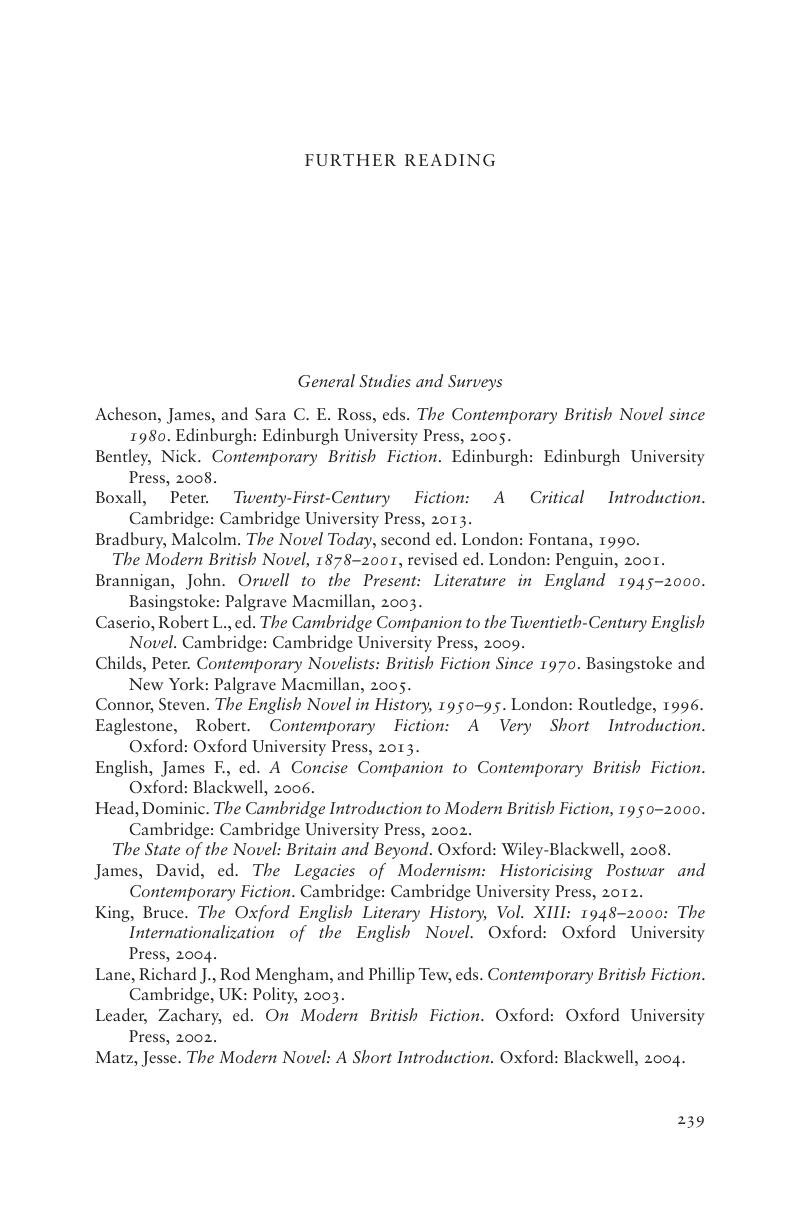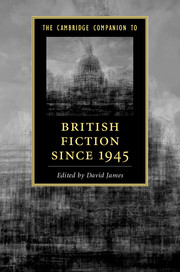Book contents
- The Cambridge Companion to British Fiction since 1945
- The Cambridge Companion to British Fiction since 1945
- The Cambridge Companion to British Fiction since 1945
- Copyright page
- Contents
- Contributors
- Book part
- Chronology
- Introduction
- Part I Reformations of National Identity
- Part II The Politics of Culture, Subjectivity, and the Environment
- Part III Recalibrations of Form and Genre
- Further Reading
- Index
- Series page
- References
Further Reading
Published online by Cambridge University Press: 05 October 2015
- The Cambridge Companion to British Fiction since 1945
- The Cambridge Companion to British Fiction since 1945
- The Cambridge Companion to British Fiction since 1945
- Copyright page
- Contents
- Contributors
- Book part
- Chronology
- Introduction
- Part I Reformations of National Identity
- Part II The Politics of Culture, Subjectivity, and the Environment
- Part III Recalibrations of Form and Genre
- Further Reading
- Index
- Series page
- References
Summary

- Type
- Chapter
- Information
- The Cambridge Companion to British Fiction since 1945 , pp. 239 - 246Publisher: Cambridge University PressPrint publication year: 2015

